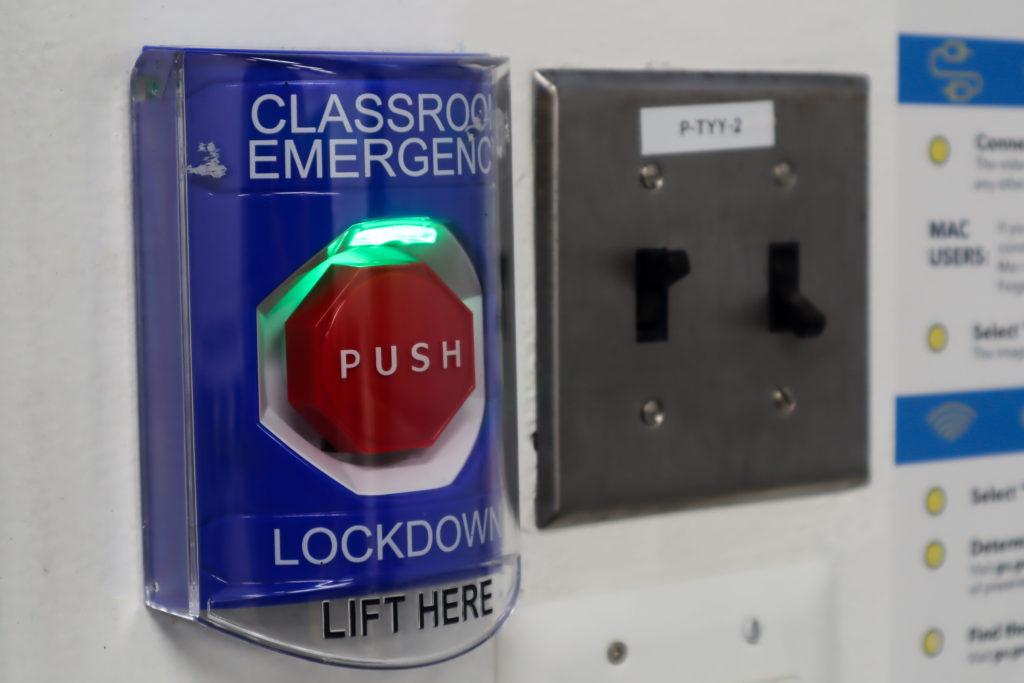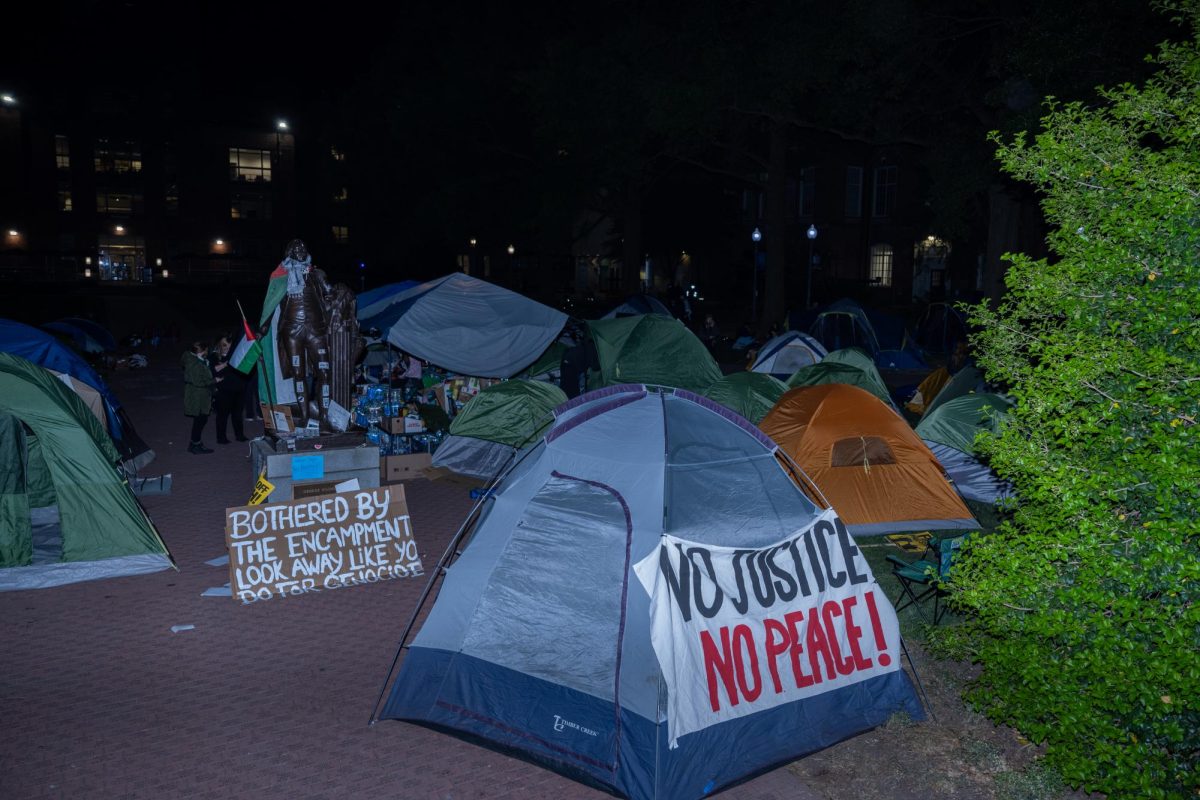Faculty members say officials have provided little to no emergency preparedness training to professors which they say leaves them unprepared to handle emergency situations.
Ten professors reported receiving varying levels of emergency preparedness training while teaching at GW, ranging from no training to mandatory videos and virtual modules during faculty orientation upon joining the University, leaving some professors feeling uneducated about what they should do in the event of an armed intruder. Although some faculty said they would be willing to receive more emergency preparedness training from officials, they reported feeling uncertainty about how additional training or University decisions like arming some GW Police Department officers next fall could reduce the risk of an active shooter situation on campus.
Heather Hoffman, a professor of biostatistics and bioinformatics, said University officials have never provided her with emergency preparedness training despite teaching at GW for more than a decade. She said she believes she could use emergency training to protect herself and her students in the event of an active shooter.
“I’ve been at GW for 17 years, since 2006, and I’ve never actually been through any type of official training,” Hoffman said.
The University does not require faculty to undergo any routine annual emergency preparedness training, but four professors reported viewing an emergency preparedness presentation during new faculty orientation in the fall, between 2017 and 2022. GW community members can request an hourlong active shooter training session from the Division of Safety and Facilities, according to the division’s website, the website’s request form is not currently accepting submissions.
University spokesperson Julia Metjian said officials are gathering input from the GW community through “reviews and discussions” about current emergency training and protocols for “enhancements” to a “holistic” public safety plan.
“We also acknowledge the importance of ensuring all GW community members are aware of the tools and technologies currently in place to support safety, including building electronic access, classroom emergency lockdown buttons, and emergency notifications,” Metjian said in an email.
The University’s Emergency Response Handbook states individuals should call 911 and follow “Run, Hide, Fight” guidelines, which say people should evacuate, hide if fleeing is impossible and fight back as a last resort.
Ten of the University’s 12 peer schools follow the “Run, Hide, Fight” guidelines from the Department of Homeland Security and Federal Bureau of Investigation active shooter response recommendations. Seven of 12 peer schools also offer optional active shooter training in addition to “Run, Hide, Fight” guidelines to students, staff and faculty.
Professors raised concerns in a Faculty Senate meeting last month about the lack of active shooter preparedness training and resources provided to GW faculty after voicing feelings of exclusion from the Board of Trustees’ decision to arm some GWPD officers next fall.
Interim University President Mark Wrighton said at at the meeting last month that the Board informed the senate’s Executive Committee of the decision to arm GWPD officers April 11, two days before the news was announced to the University community, an action that senators said violates shared governance principles agreed upon by the senate and the Board in spring of 2022. The shared governance principles state faculty have a “meaningful role” in “key” decision-making processes.
Murli Gupta, a faculty senator and professor of mathematics, said during the meeting that he has received no active-shooter training during his almost-45-year tenure at GW, and many senators were unaware of emergency response resources like classroom emergency buttons located in academic buildings. The University in 2019 began installing emergency buttons in classrooms that shut down GWorld access to the room and notify GWPD officers of emergency situations when activated.
Harald Griesshammer, a faculty senator and professor of physics, said during the meeting that he polled 20 faculty members about their awareness of the emergency buttons and reported that none of them were aware the buttons existed.
“Apparently, there needs to be a ton more communication about this, in particular since the button is actually only useful if it’s used in the emergency, which means you have to be able to find it under stress and actually remember that it exists,” Griesshammer said during the meeting.
Abigail Agresta, an assistant professor of history, said the University provided emergency preparedness training during her faculty orientation in fall 2019 in the form of a video module detailing strategies and maneuvers to use in the case of an armed intruder. She said the video did not seem “particularly appropriate” to her because it felt like a “video game.”
Agresta said she does not feel prepared to “take on” an active shooter if one enters her classroom because of “inadequate” training that she does not remember in detail. She said she does not believe that responding to an active shooter should be a part of faculty’s job, and while she does not support the University’s decision to arm some GWPD officers, she believes the likelihood of an active shooter on campus presents an “issue” that is larger than GW and faculty’s emergency preparedness training.
“I do not feel that I receive training that would prepare me to sort of take charge in these situations, but also, that isn’t really the job I was hired to do,” Agresta said. “I think more training about, for example, what happens if a student has a medical event, would certainly be welcome.”
Michelle Kelso, an assistant professor of sociology and international affairs, said she has not received any form of emergency preparedness training from officials during her time at the University but would be “open” to attending trainings because of the “frequency of shootings” in educational settings and the “current American climate” for instructors regarding mass killings and acts of violence. Kelso said she was working in the U.S. Holocaust Memorial Museum in 2009 when an active shooter opened fire in the lobby and killed one of her colleagues.
“We went on lockdown and it was an incredibly frightening ordeal that I wouldn’t wish on anyone,” Kelso said in an email. “The experience left me with a lot of anxiety about gun violence and mass shootings.”
Kelso said the “well-trained” security team at the museum “neutralized” the shooter. She said she was “surprised” by the lack of security training when she began working at GW one year after the shooting and how open GW buildings are due to its status as an “urban campus.” Kelso said she would feel “more comfortable” if the University required GWorld tap access requirements for all buildings since some buildings can be accessed without a GWorld.
“I fell into the habit of scouting out my classrooms and thinking about security — how would I protect students if a shooter was on the premise?” Kelso said.
Roberto Samaniego, a professor of economics and international affairs, said he has not received any emergency preparedness training from officials during the 22 years he has taught at the University but thinks it would be helpful to receive training as he currently does not know how he would handle an intruder. Samaniego said he wouldn’t know what types of training the University could give.
“Given the general security situation, it might be useful to have such training,” Samaniego said. “On the other hand, really, I’m not sure what meaningful training I could be given.”











